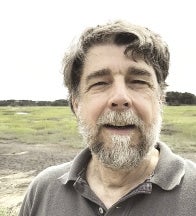
Land conservation helps the local economy
At the end of July, The Trustees of Reservations made Jewell Hill in Fitchburg, Ashburnham, and Ashby its 120th property in Massachusetts. This sweeping 296-acre parcel is a gem for hikers and others seeking renewal in the outdoors, but also a treasure for the local economy.

Scientists at Harvard Forest, Amherst College, Highstead in Connecticut, and Boston University released a study last year examining 1,500 New England cities and towns to estimate the local net impacts of private and public land conservation going back more than two decades. The study found long-term benefits going well beyond preservation and recreation.
When land protection increases in a community, so too does employment over the next five-year period, especially in rural areas. A 1% increase in land protection led to a 0.03% increase in employment, so a town of 20,000 residents increasing land protection from 10% to 15% could see the addition of 300 workers during the next five years.
The Trustees protects more than 27,000 acres of land across Massachusetts and works closely with cities and towns, along with state and federal agencies, to not only conserve land but bring revenue and cost savings to the table in every municipality with which we partner.
For every park, mountain, beach, farm, museum, or historic house The Trustees acquires, the organization makes substantial capital investments to improve hiking trails, construct, restore, or remove buildings, and implement programming where applicable. Roughly $300,000 is being spent at Jewell Hill on improvements like land surveying, demolition work, environmental site cleanup, and legal costs, money often going to local companies. Once guests start arriving, many stop in at nearby small businesses for meals, gas, supplies, and other goods and services. Although they don’t apply at Jewell Hill, there are economic benefits from Trustees’ properties featuring food service, serving as wedding venues, and hosting special events. Communities can see tangible economic gains in the form of increased property values resulting from nearby conservation land.
Other benefits come in the form of cost-savings, which are more imperceptible. Properties that aren’t developed have a lower cost of municipal services for education, police, fire, and ambulance needs. At Jewell Hill, where the City of Fitchburg Water Division has worked tirelessly to conserve surrounding lands for drinking water supply protection, half of the acreage is designated as important for protection of outstanding water resources. This prevention of activity detrimental to the water supply potentially saves millions of dollars otherwise required for filtration plans.
We have always known land conservation and the protection of natural resources has benefits for residents through recreation, quality of life, and character of our communities; more people are coming to understand the benefits extend far beyond nature to local economic wellbeing too. The Trustees looks forward to continuing to prove land conservation in the commonwealth goes hand-in-hand with wise economic development.
Rob Warren is the managing director of conservation at The Trustees of Reservations in Boston.









0 Comments